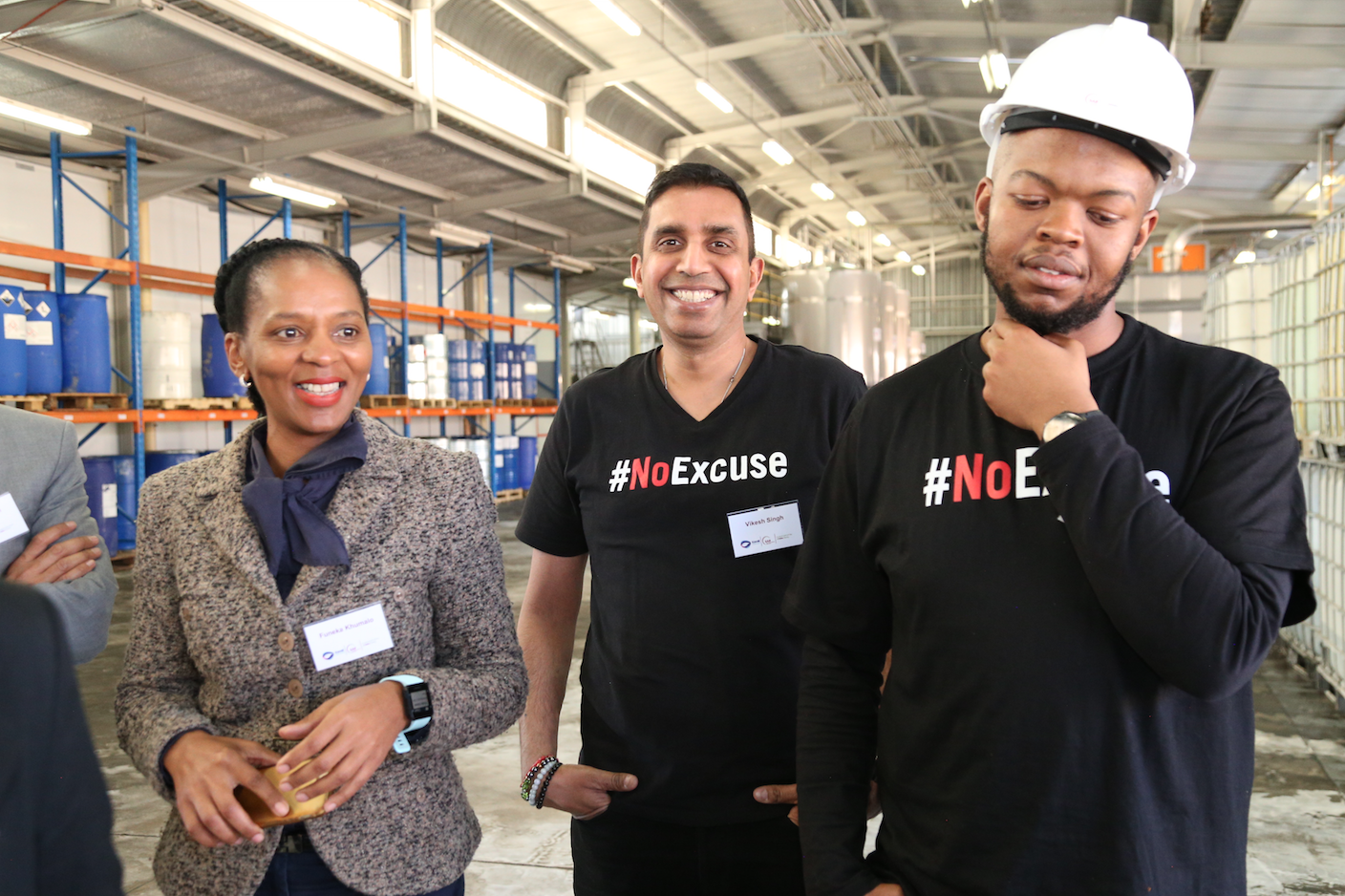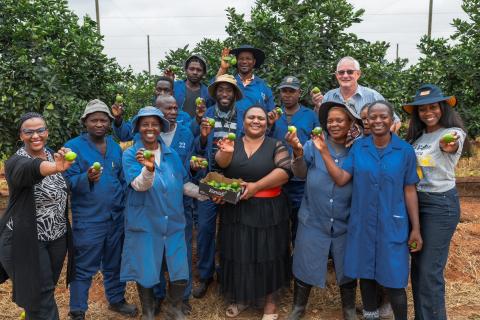
Since entering the African market at the end of 2016, AB InBev Africa has supported more than 200 local entrepreneurs in South Africa and over 500 local suppliers into its business using its entrepreneurship programmes.
Through its localisation strategy, SAB and AB InBev’s Africa’s supply chain in Africa includes close to 100% local South Africa SMME suppliers.
As part of the business combination between AB InBev and SABMiller at the end of 2016, the business made a commitment to invest R1-billion in South Africa over five years in three key pillars of Entrepreneurship, Agricultural and Societal Benefit. These areas have been identified as high impact in terms of job creation, transformation and empowerment.
The R1-billion Public Interest Commitments made by AB InBev and SAB are over and above the work that SAB already does in these focus areas. Of the R1-billion commitment, SAB has spent over R125-million or 63% on Entrepreneurship initiatives since the start of 2017.
In marking the completion of its 2nd year of delivering on its Public Interest Commitments made to the South African government, AB InBev and SAB today hosted a roundtable discussion on the importance of localisation and creating Black Industrialists in South Africa. The panel included representatives from the Department of Trade and Industry, the Department of Small Business Development, the Industrial Development Corporation, Proudly South Africa and local SAB suppliers.
“Our national government has recognised that South Africa’s economic growth and prosperity will be sustained by small businesses. The spirit of entrepreneurship has always been at the heart of SAB and continues to drive the company’s longstanding support of small business. Transforming society can be achieved effectively through job creation and localising our supply chain. We are achieving this in a sustainable manner by supporting and developing local entrepreneurs and businesses who are now part of our business,” says Bishen Morgan, Sustainability and Value Creation Director, SAB and AB InBev Africa.
“We believe small businesses are catalysts for real change in our society. As a big business we need to take the lead in supporting and nurturing those local smaller businesses who show potential to support our success, always aware that we too were once simply a start-up,” he concluded.
In South Africa, SAB has implemented proven entrepreneurship programmes, which support and develop local entrepreneurs. These entrepreneurs are in turn able to support the industry.
SAB’s enterprise development programmes are SAB Kickstart, its 24-year old youth entrepreneurship development programme that includes Urban Farming, an innovative agricultural programme, and SAB Lerumo, which targets black women-owned business.
Its supplier development programmes are SAB Accelerator and the SAB Thrive Fund.
Together SAB KickStart and SAB Lerumo, have helped to create 204 jobs over the last 2 years, while SAB Accelerator and SAB Thrive Fund have supported 563 suppliers now servicing the business.

“Localisation is an important policy tool for industrial development in South Africa and will assist in growing the manufacturing sector, as well as the manufacturing sector. We understand the importance of SAB’s role in advancing this, as well as supporting and developing Black Industrialists.
“Through our Public Interest Commitments, SAB’s Enterprise and Supplier Development programmes have contributed directly towards the realisation of government’s localisation goal,” says Morgan.
KEVALI CHEMICALS
One of the success stories is Kevali Chemicals, a beneficiary of SAB Accelerator. Kevali Chemicals is a start-up Black Owned chemical manufacturer, supplying AB InBev with adhesives, cleaning and CIP chemicals.
Kevali is a participant in the SAB Accelerator, AB InBev’s Supplier Development Programme, where they received sales and technical coaching from the SAB Accelerator. The technical development entailed improvements on gaps in their new production plant establishment and the required associated quality systems and manufacturing processes.
Kevali Chemicals proudly hosted its official launch of its greenfields industrial chemicals manufacturing facility in the Special Economic Zone near Harrismith, Free State on 6 June 2018. The establishment of this production facility was the first result of the DTI’s Black Industrialist Scheme in the Free State. The launch was attended by the Deputy Minister of Trade and Industry, Honourable BulelaniMagwanishe, DTI Black Industrialist Programme Director, Ms Malebo Mabitje-Thompson, IDC Divisional Executive Chemicals & Textiles, Mr Shakeel Meer, and Free State MEC of DESTEA, Honourable MEC Maki Mahasa.



